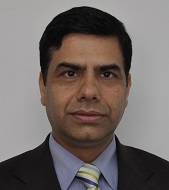Under Secretary General and High Representative for the LDCs, LLDCs and SIDS United Nations
Mr. Gyan Chandra Acharya, of Nepal, was appointed to the position of Under Secretary-General and High Representative for the Least Developed Countries, Landlocked Developing Countries and Small Island Developing States (UN-OHRLLS) on 5 September 2012.
Ambassador Acharya as Permanent Representative of Nepal to the United Nations, contributed since 2009 as Chair of the Global Coordination Bureau of the Group of Least Developed Countries, to the successful conclusion of the Fourth United Nations Conference on the Least Developed Countries and the follow-up process. He was also closely involved in the 2010 Millennium Development Goals mid-term review process and the United Nations Conference on Sustainable Development (Rio+20), held recently in Rio de Janiero, Brazil.
He was also a member of the Bureau of Landlocked Developing Countries and was elected Chair of the Commission on Social Development. From 2010 to 2011 he served as Chair of the Peacebuilding Commission’s Working Group on Lessons Learned.
Mr. Acharya brings to the position some 29 years’ experience in diplomatic service involving the articulation and promotion of bilateral, regional and global issues. Over the last several years, he has been consistently highlighting, advocating for and projecting the interests and concerns of the Least Developed Countries, Landlocked Developing Countries and Small Island Developing States.
Prior to that, Ambassador Acharya was Foreign Secretary with the Government of Nepal (2007-2009), Permanent Representative to the United Nations and the World Trade Organization in Geneva (2003-2007), Spokesman of the Foreign Ministry (1999-2002) and Joint Secretary (Director-General) responsible for South Asia, Europe and the Americas and Regional Organizations, Economic Relations and Coordination Divisions (1998-2003).
A strong advocate of the issues affecting LDCs, LLDCs and SIDS, Ambassador Acharya has stressed that “LDCs, LLDCs and SIDS issues are livelihood issues requiring urgent global attention and support” and continues to call for the pro-active role of all the stakeholders in galvanizing international support in a spirit of global partnership.




